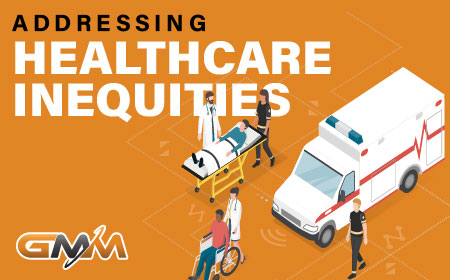No one is disputing that healthcare inequities exist; the data is available and indisputable. However, addressing and resolving the inequities is a complex issue. Equity in health care must be addressed, however, not just for moral and social justice reasons, but for economic reasons. Negative health outcomes lead to increased costs for patients, employers, insurers, and health systems. The estimated economic burden of health inequities in the United States for 2020 was $126 billion and is projected to increase each year.
One tool that can help health care professionals in addressing inequities is access to accurate and reliable demographic data. Tracking treatment outcomes using stratification with demographic data can allow health care providers to see exactly what is occurring with specific populations and whether modifications in treatment need to be made for those specific populations. Obtaining accurate data and studying that data while stratifying the demographics can help to expose health inequities and stimulate action.
Healthcare inequities go beyond the healthcare treatment that people receive at their local hospital, clinic, or doctor’s office. Where they live, access to transportation, ability to purchase healthy food options, physical safety, and more impact a person’s health. This is where community health advocates can make a difference. Someone with the ability to communicate with the patient and obtain their social determinants of health, such as possible food insecurities, housing, safety issues, etc. can then educate the patient regarding their health needs and access community resources to assist them with anything that may be impacting their health. Health systems that invest in community health advocates will benefit by enabling their patients to receive the community resources they need to manage their health, which will help to reduce health disparities.
These community health advocates can help any patients struggling not only with language communication problems, but also understanding what their doctors may be telling them, treatment options, discharge instructions, medical records, etc. If a patient cannot understand the treatments they are receiving or the actions they must take for their health, then they may be endangering their health without realizing it. An advocate that communicates in a culturally and linguistically appropriate way, at a literacy level the patient understands, can be one of the best investments a healthcare organization can make.
Obtaining the proper data and analyzing that data while using the obtained demographic information and social determinants of health, are the key factors in addressing health inequities. Healthcare systems need to embrace these methods to reduce the additional healthcare costs they are absorbing due to healthcare inequities.
Genesis Medical Management empowers medical practices to develop improvements in their operations to avoid healthcare inequities. Contact Genesis Medical Management, your healthcare solutions experts, for more information.
Let's Grow Together!
We look forward to learning about your healthcare business to discover how GMM can create a profitable solution!

Contact Us

Navigation
Contact Us

